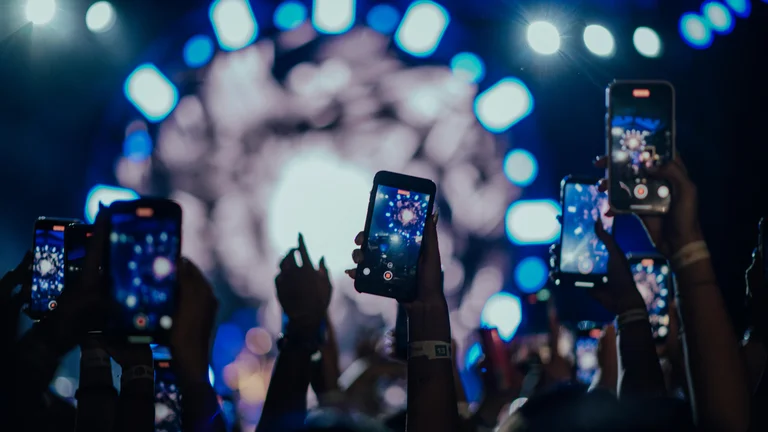1. The Rise of Digital Platforms

The emergence of social media platforms has revolutionized how music is distributed and consumed. Sites like Facebook, Twitter, and Instagram allow artists to share their music directly with fans. These platforms provide a low-cost way for musicians to reach audiences globally, transcending traditional barriers. Artists no longer rely solely on record labels or radio play to get their music heard.
Independent artists gain the ability to promote their work without a middleman. This shift enables them to control their branding and engage with fans directly. For example, a single tweet can spread a new song to thousands, something that was improbable without social media.
2. Direct Fan Engagement
Social media creates a space for two-way communication between artists and fans. Musicians can share behind-the-scenes content, allowing fans to connect personally with their work. This interaction fosters a sense of community among listeners. An artist’s online presence can build loyalty and encourage fans to support their projects.
Live streaming has also gained popularity, offering fans real-time interactions with their favorite musicians. These sessions create an intimate atmosphere, often leading to increased merchandise sales and concert attendance. Furthermore, platforms like TikTok have become vital in turning snippets of songs into viral trends, instantly boosting an artist's visibility.
3. Marketing and Promotion
Promotion strategies have fundamentally changed due to social media. Artists now utilize targeted ads to reach specific demographics. Instead of relying on traditional media outlets, they can create tailored content for their ideal audience. Innovative marketing campaigns can go viral, leading to increased listens and shares organically.
Social media analytics provide insights into audience behavior, allowing artists to adjust their strategies in real-time. Understanding which songs resonate can guide future releases. Successful campaigns often involve collaborations with influencers, further widening the reach and creating buzz around a new song or album.
4. The Influence of Streaming Services
Streaming services have partnered with social media platforms to enhance music discovery. Playlists curated on Spotify or Apple Music can be shared across social media, amplifying exposure. This synergy helps artists get discovered by new listeners quickly. Moreover, interactions on social media can propel songs to the top of streaming charts.
These services have changed revenue models for artists. Income comes from plays rather than album sales. Consequently, social media plays an essential role in driving streaming figures. Artists often promote their streams through platforms where fans can easily interact and provide feedback.
5. The Changing Landscape of Music Consumption
Music consumption habits have evolved significantly with social media. Users can now discover music through shared posts or trending hashtags, offering a more personalized experience. Fans curate their playlists, and their preferences can shape musical trends.
Social media's role in music discovery has led to diverse content creation. Genres that traditionally received less attention can gain traction through dedicated communities. Artists often feel empowered to experiment with their sound, knowing they can find an audience online. This shift leads to a richer musical landscape, where variety and innovation thrive.
FAQ
How has social media impacted music discovery?
Social media platforms have made music discovery more accessible, allowing users to find new artists through shares, likes, and trending topics.
Can independent artists succeed through social media?
Yes, independent artists can thrive on social media by building their brand and engaging directly with fans, often without needing record labels.
What role do streaming services play in this change?
Streaming services work alongside social media to enhance music visibility, helping tracks gain popularity and boost streaming numbers.
How does social media change artist-fan interaction?
Artists can engage directly with their fans through posts, comments, and live sessions, creating a more personal connection.
Is music marketing different now?
Yes, marketing strategies now focus on digital content and influencer collaborations to reach specific audiences more effectively.
Social media has significantly transformed the music industry by enhancing the way artists distribute their work and engage with fans. It enables independent musicians to connect directly with their audience, shifts marketing strategies towards digital platforms, and changes music consumption habits through streaming services and personalized discovery.
Conclusão sobre How Social Media Changed the Music Industry.